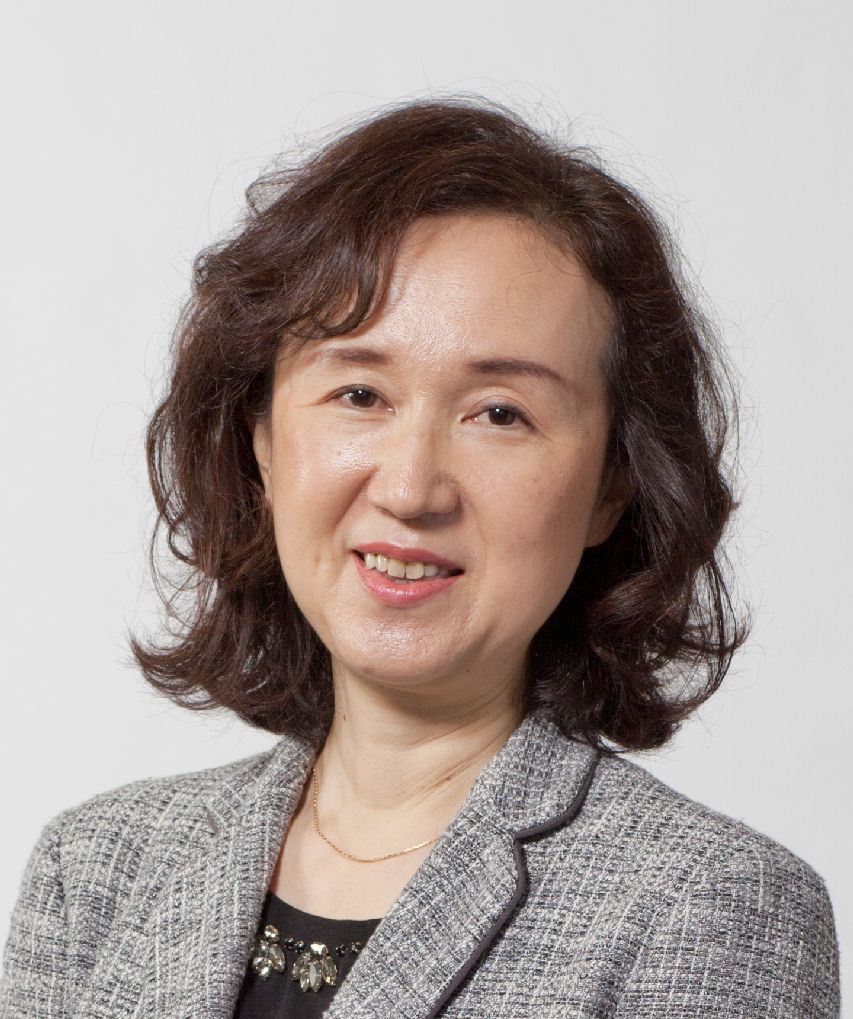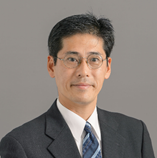Keynote Speech
Invited Speakers
Image Processing Using Machine Learning for Human Perception
Prof. Kaoru Arakawa
Meiji University
Non-orthogonal Access Schemes in 5G – Room Between Channel Capacity and System Throughput
Prof. Yukitoshi Sanada
Keio University
Title:
Image Processing Using Machine Learning for Human Perception
Speaker:
Prof. Kaoru Arakawa (Meiji University)
Schedule:
8:30-10:00, 28 November 2018
Abstract:
Since images are nonstationary and are to be evaluated by human perception, conventional linear signal processing is not valid for them.
In order to get satisfactory results in image processing, introduction of machine learning is expected,
because it can consider nonstationary fine structures in images and realize human-like smart data processing.
In this talk, methods for image processing using machine learning, which consider human perception, are presented.
Here, two types of machine learning are considered; one is to use training data and the other is not.
The former is represented by neural networks which are based on minimum mean square error criteria for desired output,
and the latter is interactive evolutionary computing based on human subjective criteria.
The performance is shown not only in general image processing such as denoising and enhancement, but also in special usage such as facial photo retouching.
Biography:
 Kaoru Arakawa received the B.E., M.E. and PhD degrees in Electronic and Electric Engineering from the Univ. of Tokyo in 1980, 1982, and 1986, respectively.
During 1984-1985, she studied at Caltech, USA, as a Fulbright Student. In 1989, she joined the Department of Computer Science, Meiji University, as a Full-time Lecturer,
and became an Associate Professor, and a Professor in 1992 and 1998, respectively.
In 2013, she moved to School of Interdisciplinary Mathematical Sciences, Meiji University, where she is now a Dean and a Professor.
In 1995, she was a visiting researcher at the University of California at Santa Barbara.
She is a Fellow of IEICE and a Council Member of Science Council of Japan. She served as the chair of ISPACS International Steering Committee in 2014-2015.
She received Best Paper Award from IEICE in 2004, and IEEE Tokyo Section Women Pioneer Award in 2006.
Her research interests include audio and visual signal processing, machine intelligence and biomedical information analyses.
Kaoru Arakawa received the B.E., M.E. and PhD degrees in Electronic and Electric Engineering from the Univ. of Tokyo in 1980, 1982, and 1986, respectively.
During 1984-1985, she studied at Caltech, USA, as a Fulbright Student. In 1989, she joined the Department of Computer Science, Meiji University, as a Full-time Lecturer,
and became an Associate Professor, and a Professor in 1992 and 1998, respectively.
In 2013, she moved to School of Interdisciplinary Mathematical Sciences, Meiji University, where she is now a Dean and a Professor.
In 1995, she was a visiting researcher at the University of California at Santa Barbara.
She is a Fellow of IEICE and a Council Member of Science Council of Japan. She served as the chair of ISPACS International Steering Committee in 2014-2015.
She received Best Paper Award from IEICE in 2004, and IEEE Tokyo Section Women Pioneer Award in 2006.
Her research interests include audio and visual signal processing, machine intelligence and biomedical information analyses.
Title:
Non-orthogonal Access Schemes in 5G – Room Between Channel Capacity and System Throughput
Speaker:
Prof. Yukitoshi Sanada (Keio University)
Schedule:
8:30-10:00, 29 November 2018
Abstract:
Because of the wide use of smart phones and mobile terminals, a higher data rate is an inevitable demand in wireless communications.
The 5th generation (5G) mobile communication systems, which are expected in 2020, have been investigated to accommodate explosive traffic growth.
In the 5G, new multiple access schemes such as massive MIMO, NOMA, or SCMA has been proposed and actively investigated.
The notable point of these schemes is that non-orthogonality is effectively utilized.
To realize these multiple access schemes, efficient and near-optimum multi-signal detection techniques have been developed from the CDMA.
This keynote overviews those multiple access schemes and focuses on multi-signal detection techniques that are closely related to multiple access schemes.
Biography:
 Yukitoshi Sanada received his Ph.D. degree in electrical engineering from Keio University, Yokohama, Japan, in 1997.
In 1997 he joined the Faculty of Engineering, Tokyo Institute of Technology as a Research Associate.
In 2000, he joined Advanced Telecommunication Laboratory, Sony Computer Science Laboratories, Inc, as an associate researcher.
In 2001, he joined the Faculty of Science and Engineering, Keio University, where he is now a professor.
He received the Fellow Award from IEICE Japan in 2017.
His current research interests are next generation mobile communication systems.
Yukitoshi Sanada received his Ph.D. degree in electrical engineering from Keio University, Yokohama, Japan, in 1997.
In 1997 he joined the Faculty of Engineering, Tokyo Institute of Technology as a Research Associate.
In 2000, he joined Advanced Telecommunication Laboratory, Sony Computer Science Laboratories, Inc, as an associate researcher.
In 2001, he joined the Faculty of Science and Engineering, Keio University, where he is now a professor.
He received the Fellow Award from IEICE Japan in 2017.
His current research interests are next generation mobile communication systems.





 Kaoru Arakawa received the B.E., M.E. and PhD degrees in Electronic and Electric Engineering from the Univ. of Tokyo in 1980, 1982, and 1986, respectively.
During 1984-1985, she studied at Caltech, USA, as a Fulbright Student. In 1989, she joined the Department of Computer Science, Meiji University, as a Full-time Lecturer,
and became an Associate Professor, and a Professor in 1992 and 1998, respectively.
In 2013, she moved to School of Interdisciplinary Mathematical Sciences, Meiji University, where she is now a Dean and a Professor.
In 1995, she was a visiting researcher at the University of California at Santa Barbara.
She is a Fellow of IEICE and a Council Member of Science Council of Japan. She served as the chair of ISPACS International Steering Committee in 2014-2015.
She received Best Paper Award from IEICE in 2004, and IEEE Tokyo Section Women Pioneer Award in 2006.
Her research interests include audio and visual signal processing, machine intelligence and biomedical information analyses.
Kaoru Arakawa received the B.E., M.E. and PhD degrees in Electronic and Electric Engineering from the Univ. of Tokyo in 1980, 1982, and 1986, respectively.
During 1984-1985, she studied at Caltech, USA, as a Fulbright Student. In 1989, she joined the Department of Computer Science, Meiji University, as a Full-time Lecturer,
and became an Associate Professor, and a Professor in 1992 and 1998, respectively.
In 2013, she moved to School of Interdisciplinary Mathematical Sciences, Meiji University, where she is now a Dean and a Professor.
In 1995, she was a visiting researcher at the University of California at Santa Barbara.
She is a Fellow of IEICE and a Council Member of Science Council of Japan. She served as the chair of ISPACS International Steering Committee in 2014-2015.
She received Best Paper Award from IEICE in 2004, and IEEE Tokyo Section Women Pioneer Award in 2006.
Her research interests include audio and visual signal processing, machine intelligence and biomedical information analyses.